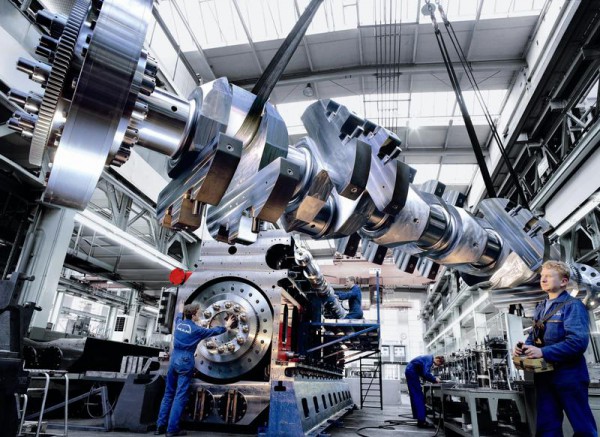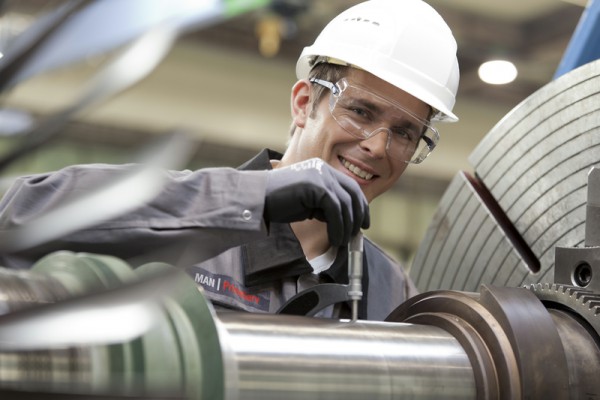MAN case draws parallels with VW engine scandal
IM Skaugen's $50 million claim against MAN over rigged engine tests has reached stalemate, while MAN – in which VW has a controlling interest – denies connections with the VW dieselgate scandal.…
Norwegian LNG/LPG and petrochem carrier IM Skaugen is seeking US$50 million in compensation from engine manufacturer MAN – which is now part of the VW group – in a case that relates to six engines delivered between 2002-2003. As with VW’s automotive business, MAN was rocked by its own ‘dieselgate’ scandal when it admitted in 2011 to using a software algorithm on its 4-stroke engine test rig that could alter the fuel efficiency readings of engine units.
When MAN’s then chairman became aware of the test rigging in 2011 he immediately launched an internal investigation and alerted the authorities. A subsequent court case in Augsburg, Germany in 2013 identified ‘at least 92 cases’ of doctored test results between 2006-2011, although not every engine’s results needed to be manipulated to meet contracted fuel efficiency figures. MAN was fined €8.2 million and settled with all bar one of its affected customers at a cost of an additional €43 million.
IM Skaugen said its decision in October 2015 to publicise its case against MAN was in response to MAN allegedly unilaterally halting negotiations to reach a settlement out of court. MAN says it has its own counterclaims against IM Skaugen from “different supply contracts”, and that it was the Norwegian company that stopped negotiations.
While the IM Skaugen claim remains an isolated remnant of MAN’s rigged testing procedures before they were overhauled in 2011, it raises the question of whether the original MAN test rigging was in some way linked to the VW scandal that has rocked the German car giant in recent weeks.
VW first acquired a stake in MAN in 2006, partly in response to a failed 2006 takeover attempt by MAN of truck and bus builder Scania which was blocked by Scania’s main shareholder – VW. The contentious VW EA 189 engine started development in 2005, but it was close to its launch in 2008 that the ‘cheat’ software was installed, supposedly to mask the deficiencies of the diesel’s emissions that VW’s development engineers couldn’t counter mechanically without significantly increasing the unit price of each engine.
VW had continued to acquire shares in MAN to 30 per cent in 2007 and then in 2011 to a majority share of 53 per cent, before finally acquiring a 75 per cent controlling interest in 2012. MAN has previously denied any connection between its own fuel efficiency testing procedure and the VW emissions cheat software, and a statement to SuperyachtNews.com confirmed this stance. “As regards the current Volkswagen issue,” a spokesman for MAN writes, “please appreciate that MAN was not even part of the Volkswagen group back in 2011 – the investigations in relation to fuel consumption data at MAN were initiated long before VW took over a majority stake in MAN.”
“In addition,” the spokesman continues, “the engines built by MAN Diesel & Turbo are of a different type than those built by Volkswagen. MAN Diesel & Turbo also builds its engines for different purposes than Volkswagen.”
It seemingly falls short of a clear, categorical denial, but by the same token MAN’s self-initiated investigation into its own testing practices and subsequent efforts to make its own issues public knowledge back in 2011 show that the company has cleaned up its act of its own volition.
It is also forging ahead with new technologies to meet upcoming Tier III requirements. “More than half the world’s commercial goods are transported by sea – with MAN Diesel & Turbo designed engines,” says MAN. “We are fully aware of the responsibility that this implies for our company – protecting the environment therefore plays a crucial role. Even more so over the past four years where emissions have come increasingly more into focus with the impending advent of the IMO’s Tier III limits.”
Among the innovations MAN has introduced are primary measures such as engine design and secondary measures that integrate other technologies such as MAN’s Exhaust Gas Reduction and Selective Catalytic Reduction systems. The company has also developed a dual-fuel portfolio of engines that, when running in liquid gas mode, can see reductions of 80 per cent in NOx emissions and considerably lower CO2 emissions.
While MAN has addressed and modified its own test procedures since 2011, it does leave a wider question open – has the practice of cheating efficiency or emissions tests been more widespread among engine manufacturers than anyone has realised?
NEW: Sign up for SuperyachtNewsweek!
Get the latest weekly news, in-depth reports, intelligence, and strategic insights, delivered directly from The Superyacht Group's editors and market analysts.
Stay at the forefront of the superyacht industry with SuperyachtNewsweek
Click here to become part of The Superyacht Group community, and join us in our mission to make this industry accessible to all, and prosperous for the long-term. We are offering access to the superyacht industry’s most comprehensive and longstanding archive of business-critical information, as well as a comprehensive, real-time superyacht fleet database, for just £10 per month, because we are One Industry with One Mission. Sign up here.
NEW: Sign up for
SuperyachtNewsweek!
Get the latest weekly news, in-depth reports, intelligence, and strategic insights, delivered directly from The Superyacht Group's editors and market analysts.
Stay at the forefront of the superyacht industry with SuperyachtNewsweek





